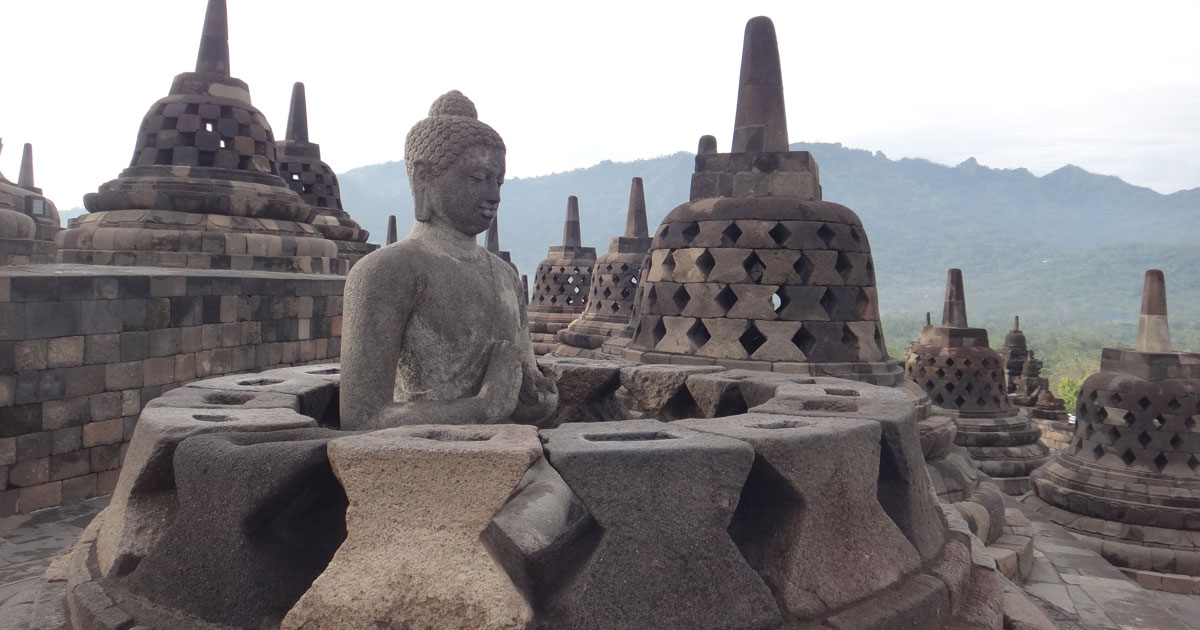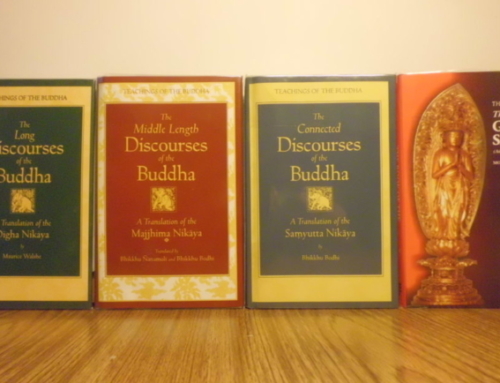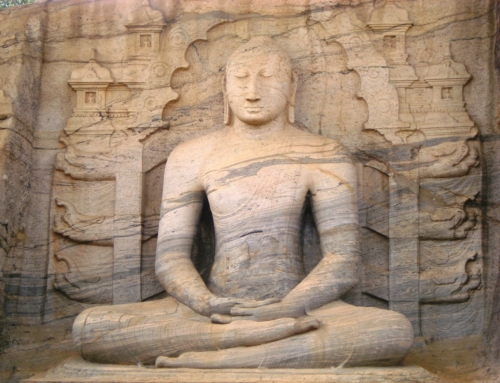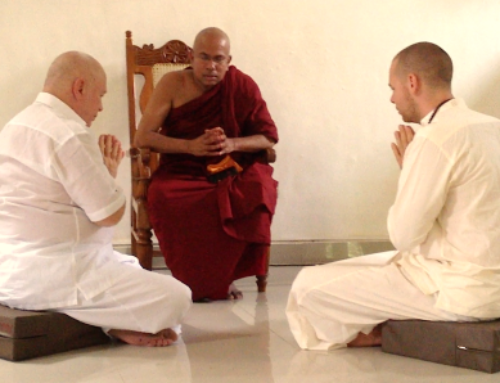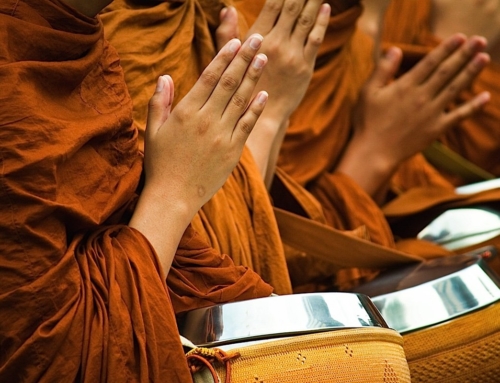Meditation – The Buddha’s Way
Meditation is a popular subject among many communities in the world also it is one of those subjects which have a long time historical importance. Throughout the ages there were ascetics who moved into seclusion to meditate searching for a path for spiritual development. Those ascetics practiced meditation with great effort and achieved special spiritual stages of the mind.
Realizing the ultimate truth to end suffering
Many interpreted their experiences as enlightenment and they tought their experiences, knowledge, and views to their followers. Among those ascetics who mastered meditation there was one who emerged in the world surpassing all of the others, purifying the mind from its impurities, realizing the ultimate truth to end suffering who became the Supremely Enlightened One known by all as the “Buddha”.
Anapanasati
To find the path to end suffering, the Blessed One – as he was respectfully called by his disciples – used a meditation technique named “Anapanasati” otherwise known as breathing meditation. With his sublime wisdom he realized that all beings in the world are caught in the hands of greed, hatred, and delusion which lead them to continued birth, ageing, and death in the endless cycle of rebirth known as “Samsara”.
The Blessed One found the noble path to escape from this suffering and achieved the ultimate happiness he himself named as “Nibbana”. With kindness in his heart he preached his wisdom to wise gods and men who whole-heartedly became his followers.
The Sangha
The teachings of the Blessed One are referred to as “The Dhamma”. Wise men and women in the human world went into homelessness to become monastics after hearing his Dhamma and gathered around him to achieve Nibbana. Among them were monks and nuns who became “Arahants” – the enlightened ones – by fulfilling the Buddha’s training and putting an end to the suffering of rebirth. The others were the path practitioners whose training was yet incomplete. These disciples are called “the Sangha”.
Sangha took immense efforts
All Theravada Buddhists devotedly take refuge in the Buddha, Dhamma, and Sangha known as the “Triple Gem”. The lay disciples of the Buddha who were householders associated with the Sangha as their noble friends to learn the Dhamma. After the passing away of the Buddha the Sangha took immense efforts to uphold the Dhamma throughout the generations.
The worthiest and most amazing treasure of the universe with its gods and men, the Dhamma, teaches the unsurpassed art of purifying the mind, “Meditation”. The meditation taught by the Buddha has two main aspects, Samatha (Calm) and Vipassana (Insight). In Samatha meditation one tranquilizes the mind with concentration and mindfulness. While in Vipassana meditation one penetrates the reality of life with profound wisdom.
The ultimate goal of meditation is to end suffering by completely abandoning desire for all things of mind and matter. But in general the expectation to build a calm, peaceful, and happy mind is a good motivation to start practicing meditation – the Buddha’s way.
The Common understanding of meditation is that is a technique to improve concentration. But the Dhamma teaches that improving good, humble, and wholesome human qualities is more important than a good concentration.
Rejected revenge
It is shown in the Dhamma that a person can improve concentration while having bad qualities and intentions. The Buddha’s way of meditation improves good human qualities which benefit all beings. The Buddha taught that a developed mind is always full of wholesome thoughts and actions. Those with developed minds have kind hearts with good self-confidence. They live their lives having removed jealousy, abandoned anger, and rejected revenge. Such a mind peacefully bares any misfortune, doesn’t blame anyone at all, and pervades the entire world with equanimity. This is how the Buddha defined the proper mind development.
The Blessed One compassionately preached to abandon what is harmful for the world namely killing, stealing, sexual misconduct, lying, divisive speech, harsh words, and all other harmful bodily, verbal, and mental actions supported by the three roots of unwholesome, greed, hatred, and delusion.
Anyone who likes to have a developed mind must wisely understand the human mind’s capability to be developed and the rare opportunity of a human life. Above all it is essential to have a confident and pleasant mind towards the Buddha by believing in his purity, enlightenment, and the capability of his teachings to help gods and humans to develop their minds.
Foundation for someone
Moreover it is important to have a virtuous life by practicing the five basic precepts which are: Abstaining from killing beings, from stealing, from sexual misconduct, from lying, and from taking intoxicating drinks and drugs. This creates a foundation for someone to learn and start practicing an easy-to-do meditation technique taught by the Buddha. They should make sure that what they learn is an unaltered technique which can be found in the Buddhist scriptures (Suttas).
Loving kindness meditation is a good meditation for beginners. The practitioner starts by spreading kind thoughts to the world by reflecting: “May all beings be free from anger, jealousy, anxiety, sorrow, and may they be well and happy”
It is important to understand that practicing meditation does not give instant results.
Continuous effort
A rare red sandalwood tree planted in the ground takes time to become matured enough to provide its invaluable hardwood. In the same way it takes time to develop even a little bit of good qualities in a human life. But with continuous effort and determination one has the chance to eventually become one of those fortunate beings on earth who possess great minds.
On one occasion the Blessed One uttered this inspiring verse:
“The wise man gradually,little by little, moment by moment,must cleanse his mind of impurities,just as a gold smith cleanses gold by removing its stains.”(Dhammapada)
May all being be well and happy!
Written by a Venerable Monk of Mahamevnawa Buddhist Monastery

